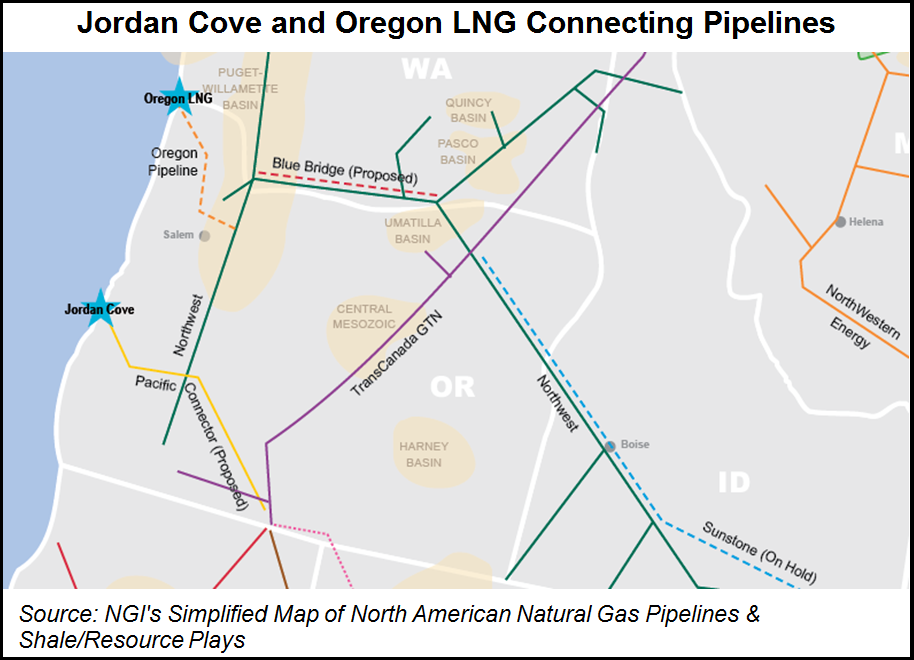Regulatory | LNG | NGI All News Access | NGI The Weekly Gas Market Report
Rockies GOP Lawmakers Push Jordan Cove LNG Project
Fourteen Republican members of Congress on Monday urged FERC to quickly finish its environmental review of the proposed Jordan Cove liquefied natural gas (LNG) export project along the south-central coast of Oregon. They called the project the only outlet to overseas markets for gas produced in Wyoming, Colorado and Utah.

Sens. John Barrasso and Michael Enzi from Wyoming joined Sens. Cory Gardner (CO), Orrin Hatch and Mike Lee from Utah and Republican House members from the three states — Rob Bishop (UT), Ken Buck (CO), Jason Chaffetz (UT), Mike Coffman (CO), Doug Lamborn (CO), Mia Love (UT), Cynthia Lummis (WY), Chris Stewart (UT), and Scott Tipton (CO) — in sending a letter urging completion of an environmental review “as soon as possible.”
In writing Federal Energy Regulatory Commission Chairman Cheryl LaFleur, the lawmakers described Jordan Cove as “essential” to ensure that Rocky Mountain states and Indian tribes have the opportunity to access overseas markets and enjoy the economic benefits of LNG exports.
They called natural gas production “a foundation” to the economies of their Rocky Mountain states, providing local communities with “tens of thousands” of good-paying jobs.
The lawmakers’ letter pointed out that the Jordan Cove project, with its 234-mile, 36-inch diameter transmission pipeline, would connect to the Gas Transmission Northwest Pipeline and Ruby interstate pipeline, and thus, to the Rockies supplies.
“Overseas markets would give [Rockies] producers an alternative to markets here in the United States, Canada and Mexico,” the lawmakers said. “FERC has already given eastern and Gulf Coast states the opportunity to access overseas markets.”
In making the pitch to FERC, the lawmakers did not mention a second proposed LNG export project at Warrenton, OR, by Oregon LNG, even though it, too, bids to tap into U.S. Rockies gas supplies, along with supplies from British Columbia and Alberta in western Canada.
A spokesperson for Sen. Barrasso said the Oregon LNG project “would exclusively export gas from Canada,” so therefore was not included in the lawmakers’ appeal at FERC.
© 2024 Natural Gas Intelligence. All rights reserved.
ISSN © 1532-1231 | ISSN © 2577-9877 | ISSN © 1532-1266 |
